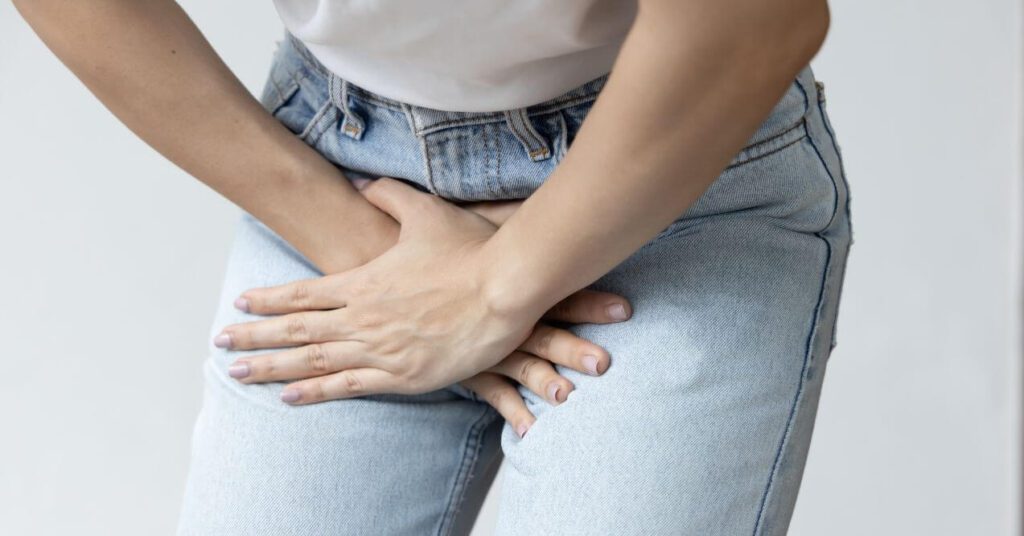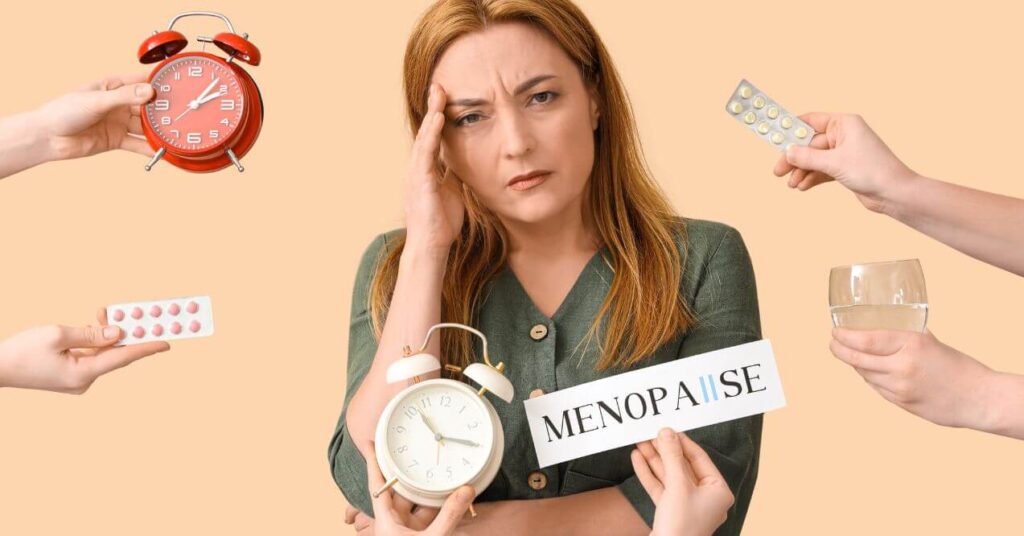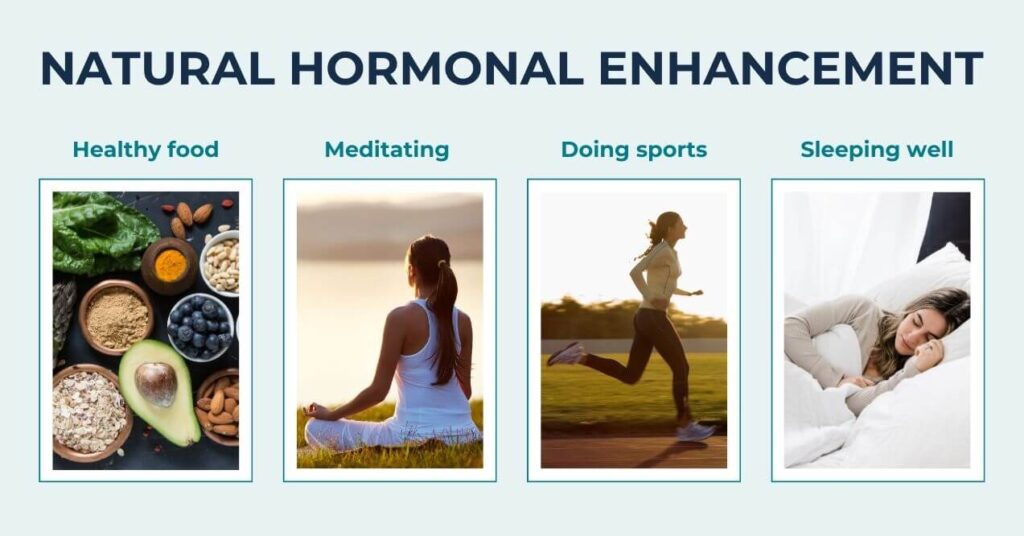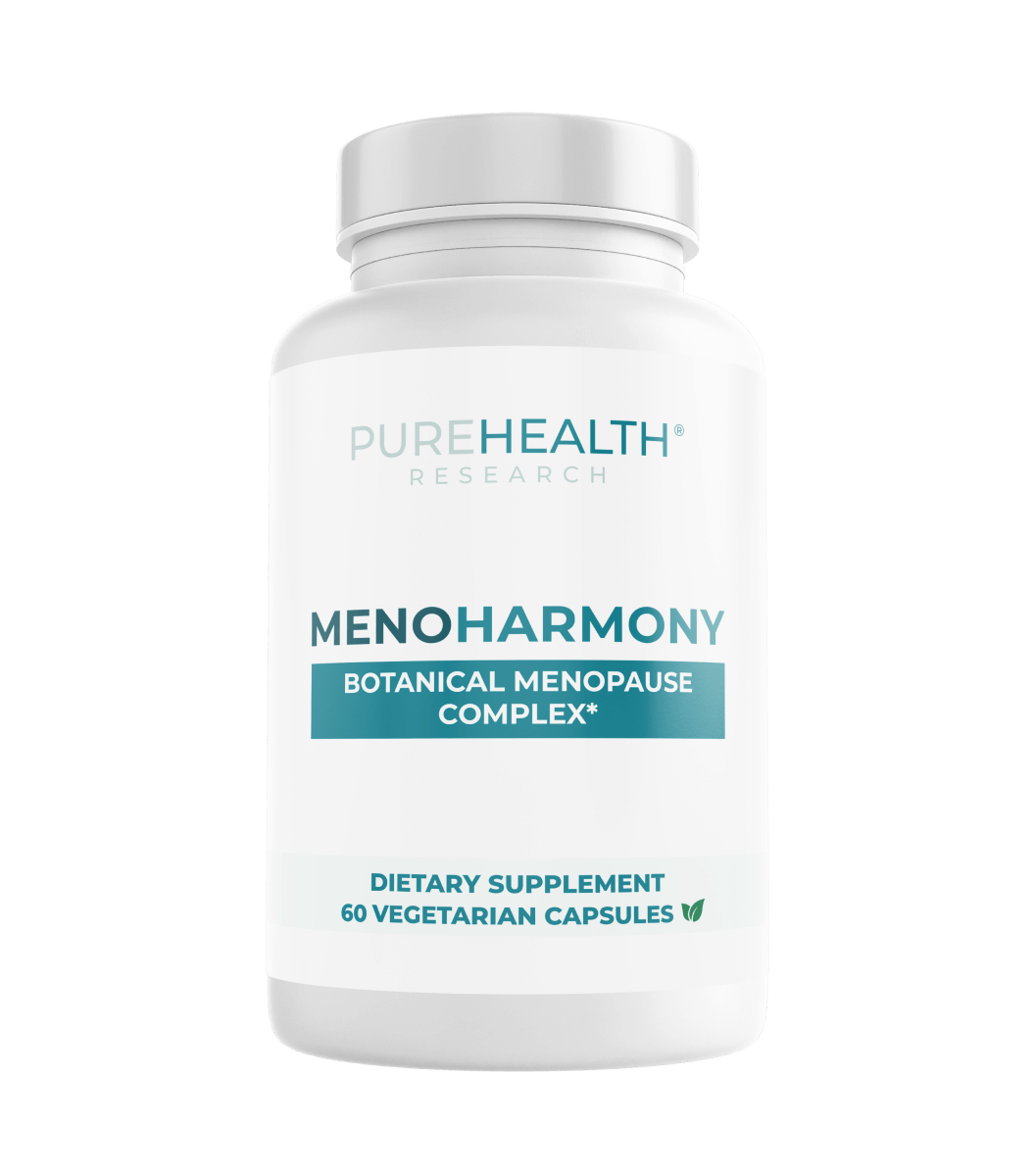How Long Does It Take to Balance Hormones?


How long does it take to balance hormones? Have you ever looked in the mirror and wondered, “Who is this person?” Your once vibrant self feels like a distant memory. Mood swings, fatigue, brain fog, and a rollercoaster of emotions have become your new normal.
But amidst the chaos of daily life, it’s easy to brush off these signs, telling yourself it’s just stress or a passing phase. But what if it’s not? What if these are red flags of a hormonal imbalance that’s silently wreaking havoc on your health?
In this article, we’ll delve into the intricacies of hormone balancing, exploring the factors that influence the timeline for restoration. We’ll uncover natural methods and lifestyle modifications that can empower you to reclaim your well-being. It’s time to take charge of your health before the damage becomes irreversible.
What is a Hormonal Imbalance?
A hormonal imbalance occurs when the delicate equilibrium of hormones in your body is disrupted. Hormones are chemical messengers that regulate various bodily functions, from metabolism and mood to growth and reproduction. When these potent substances are out of sync, it can trigger a cascade of unpleasant symptoms that impact your quality of life.
Endocrine glands secrete hormones directly into the bloodstream, where they travel to target tissues and organs, delivering their messages and initiating specific biological responses:
- Thyroid gland. The thyroid is a butterfly-shaped gland located in the neck. It produces hormones that regulate metabolism, body temperature, heart rate, and energy levels.
- Adrenal glands. The adrenal glands are located on top of the kidneys. They produce hormones such as cortisol, which helps regulate stress response, blood pressure, and inflammation, and aldosterone, which regulates water and salt balance in the body.
- Pancreas. The pancreas is an organ located behind the stomach. It produces insulin and glucagon, hormones that regulate blood sugar levels. Imbalances in these hormones can lead to difficulties in maintaining normal sugar levels.
- Reproductive organs. The ovaries in females and the testes in males are responsible for producing sex hormones. In females, the ovaries produce estrogen and progesterone, which regulate menstrual cycles, fertility, and female characteristics.
In males, the testes produce testosterone, which regulates male characteristics, sex drive, and sperm production. Imbalances in sex hormones can lead to various issues, such as irregular menstrual cycles, difficulties conceiving, and reduced sex drive.
Understanding Hormones and Their Function
While both females and males have a mix of hormones, women are more prone to fluctuations due to their reproductive cycles. Let’s take a closer look at the primary hormones that often fall out of balance:
Estrogen
Estrogen is responsible for the development and maintenance of feminine characteristics. It plays a vital role in regulating the menstrual cycle, maintaining bone density, and supporting cardiovascular health. However, when estrogen levels soar or plummet, it can lead to a host of issues, from painful periods to mood swings and weight gain.
Progesterone
Progesterone, often overshadowed by its more well-known counterpart, estrogen, is equally crucial for hormonal harmony. This hormone helps prepare the uterus for pregnancy and regulates the menstrual cycle. When progesterone levels are out of whack, it can contribute to symptoms like irregular periods, PMS, and even infertility.
Testosterone
While testosterone is typically associated with men, women also produce this hormone in smaller amounts. Testosterone contributes to muscle mass, bone density, and libido. An imbalance in testosterone can lead to low sex drive, fatigue, and even depression in both sexes.
Symptoms of Hormone Imbalance
Hormones play a crucial role in our bodies, regulating various functions and maintaining overall balance. When hormonal imbalances occur, they can cause a wide range of symptoms that are often mistaken for normal signs of aging or dismissed as minor health issues.
However, these symptoms can be warning signs that your hormones are not functioning optimally. Let’s take a closer look at the common indicators of hormonal imbalances:
1. Menstrual Issues
For women, menstrual irregularities are often the first red flag of a hormonal imbalance. If you’re experiencing painful menstruation, heavy or irregular menstrual cycles, menstrual bleeding duration anomalies, numerous clots, or color changes in menstrual blood, it’s time to pay attention. These symptoms can indicate an underlying issue that needs addressing.

2. Hormonal Symptoms
Beyond the menstrual cycle, hormonal imbalances can manifest in other telltale signs. The absence of menstruation, often post-birth control, is a cause for concern. Premenstrual syndrome (PMS) that goes beyond the occasional mood swing or craving can also point to a hormonal issue. For women in their later years, hot flashes and night sweats can be a signal of menopause-related hormonal shifts.
Additionally, for those who wonder, “Does ovulation make you tired?” some women experience fatigue due to progesterone fluctuations during ovulation, highlighting the connection between hormones and energy levels.

3. Physical Changes
Hormones play a significant role in regulating our metabolism and physical appearance. If you’re struggling with weight gain or finding it difficult to lose weight despite your best efforts, it might be time to investigate your hormone levels. Other physical changes to watch out for include hair thinning or loss on the scalp, unwanted hair growth on the face, back, and chest, breast tenderness or fibrocystic changes, and persistent acne outbreaks.

4. Emotional and Cognitive Effects
The impact of hormonal imbalances extends beyond the physical realm, often taking a toll on our emotional well-being and cognitive function. Mood fluctuations, increased susceptibility to stress, anxious feelings, sleep disturbances, memory lapses, and concentration difficulties can all be signs that your hormones are out of sync.

5. Fertility Issues
For couples trying to conceive, hormonal imbalances can be a significant roadblock. If you’re facing challenges with fertility, it’s essential to explore the possibility of a hormonal issue as a contributing factor.

6. Systemic Symptoms
Hormonal imbalances may manifest in a wide range of systemic symptoms that affect multiple bodily functions. These symptoms include physical fatigue, digestive issues, and changes in skin and body functions. Additionally, they may experience pain, swelling, changes in thirst or temperature sensitivity, and circulation or heart rate irregularities.

It’s important to note that the connection between gut health and hormones is a crucial one. The gut is often referred to as the “second brain” due to its complex network of neurons and its ability to produce and regulate hormones. An imbalance in gut bacteria may lead to inflammation, which in turn can disrupt hormone production and metabolism.
How Long Does It Take To Balance Hormones?
The million-dollar question on everyone’s mind – how long does it take to balance hormones? The answer is not straightforward, as the timeline for hormone balancing can vary significantly depending on several factors:
- Severity of the imbalance. The more severe the hormonal imbalance, the longer it may take to restore balance.
- Underlying health conditions. Certain health conditions, such as ovarian cysts that produce excess androgen hormones or thyroid disorders (especially following thyroid removal, when dietary adjustments become even more crucial), can make it more challenging to balance hormones and may require additional time and treatment.
- Lifestyle factors. Diet, exercise, stress levels, and sleep quality can all impact the speed at which hormones can be balanced.
- Specific hormones involved. Different hormones may require varying amounts of time to balance, depending on their unique functions and the extent of the imbalance.
In general, it’s essential to approach hormone balancing as a journey rather than a quick fix. Some people may start to notice improvements within a few weeks of implementing lifestyle changes and natural remedies, while others may require several months or even longer to experience significant results.
Consistency is key when it comes to rebalancing your hormones, and making sustainable lifestyle changes, such as eating a nutrient-dense diet, exercising regularly, managing stress, and prioritizing sleep, is the foundation for long-term hormonal health. Sleep, in particular, is essential—not only for hormone balance but for overall well-being, as lack of sleep can cause nausea and other symptoms that disrupt your body’s natural rhythms, making rest a critical component of maintaining hormonal health.
What Can I Do to Balance My Hormones?
Balancing hormones naturally involves a holistic approach that encompasses lifestyle changes, diet, and possibly supplementation under the guidance of a healthcare professional. Here are some key strategies to consider:
- Maintain a healthy weight through a balanced diet and regular exercise.
- Eat a nutrient-dense diet with plenty of leafy greens, colorful fruits and vegetables, lean proteins, and healthy fats. Some of the best foods for balancing hormones include avocados, nuts, seeds, fatty fish, and fermented foods.
- Exercise regularly, aiming for at least 30 minutes of moderate activity most days of the week.
- Manage stress through practices like meditation, deep breathing, yoga, or spending time in nature.
- Prioritize quality sleep, aiming for 7-9 hours each night.
- Manage chronic health conditions effectively, working closely with your healthcare provider.
- Quit smoking or using tobacco products.

Also, you may consider supplements for women’s health like PureHealth Research Menoharmony. MenoHarmony combines a potent botanical mimicking-estrogen that has been known to be used by women for centuries.
Dr. Holly, a respected healthcare professional, recommends MenoHarmony for its powerful ingredients known to significantly alleviate menopausal symptoms such as hot flashes, night sweats, cramps, vaginal dryness, mood swings, fatigue, muscle and joint aches, uncontrolled weight gain, and more.
Other beneficial supplements that often make the list of the 10 best hormone balance supplements include probiotics, omega-3 fatty acids, vitamin D, and maca root, all of which should be taken under the guidance of a healthcare professional.
To support hormonal balance through diet, focus on whole, nutrient-dense foods like leafy greens, colorful fruits and vegetables, lean proteins, and healthy fats. Avoid processed foods, refined sugars, and artificial additives that can disrupt hormone balance.
Hormone levels can be checked through blood, saliva, or urine tests. Your healthcare provider can order the appropriate tests based on your symptoms and medical history. Commonly tested hormones include estrogen, progesterone, testosterone, thyroid hormones, cortisol, and insulin.
Supporting your body’s natural detoxification processes can help promote hormonal balance. Some strategies include staying hydrated, eating a fiber-rich diet to support regular bowel movements, sweating through exercise or sauna use, getting enough sleep, and minimizing exposure to endocrine-disrupting chemicals in personal care and household products. Specific detox protocols should be undertaken only under the guidance of a qualified healthcare professional.
Popular Articles
Advertisement. This site offers health, wellness, fitness and nutritional information and is designed for educational purposes only. You should not rely on this information as a substitute for, nor does it replace, professional medical advice, diagnosis, or treatment. If you have any concerns or questions about your health, you should always consult with a physician or other health-care professional. Do not disregard, avoid or delay obtaining medical or health related advice from your health-care professional because of something you may have read on this site. The use of any information provided on this site is solely at your own risk.

















